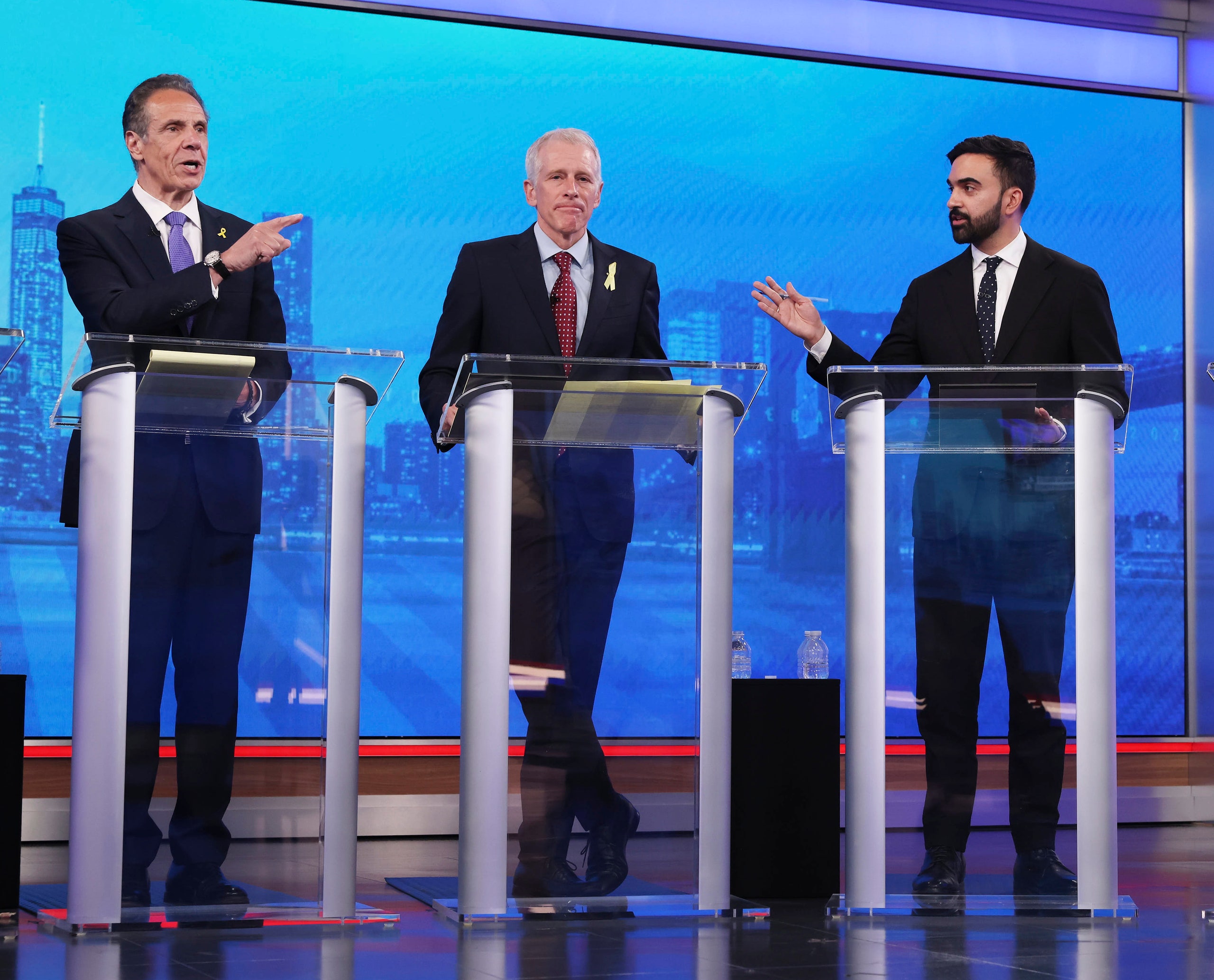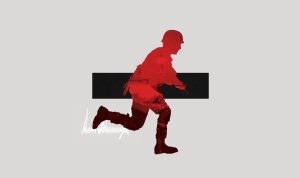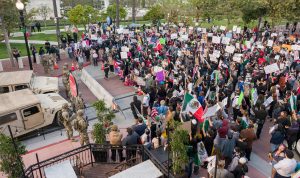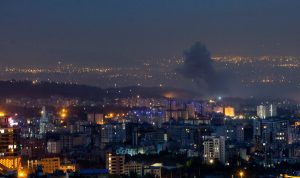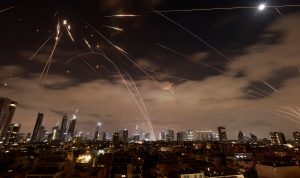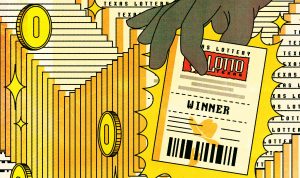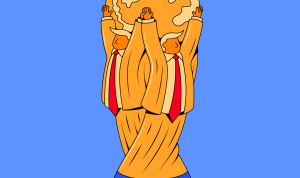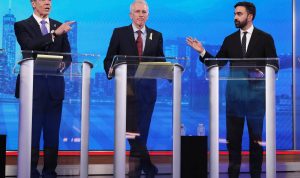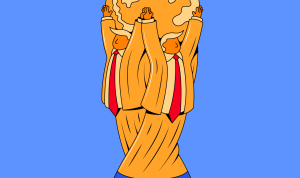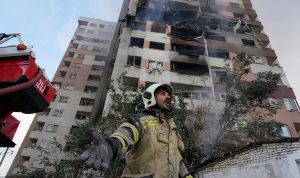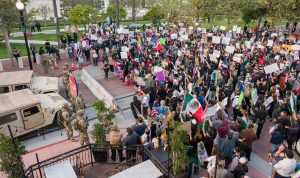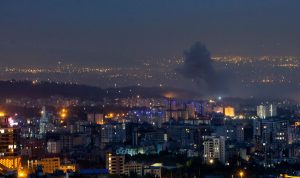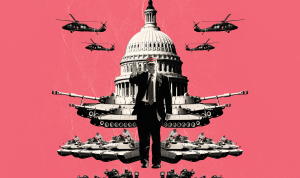Andrew Cuomo and Zohran Mamdani are leading the Democratic field. Even they seem nervous.
This year’s mayoral race has so far been a strange, frustrating exercise. The Democratic primary, usually definitive, is looking like a two-man race between candidates who are not guaranteed to win in November: Andrew Cuomo, the former governor, and Zohran Mamdani, a democratic socialist who has served four years in the State Assembly. One is only a few years removed from resigning amid an enormous sexual-harassment and abuse-of-powerscandal. The other is a decade removed from college. The political trajectory of the city is genuinely up for grabs. And no one’s feeling too confident about it.
On Thursday evening—two days before the start of early voting—Cuomo, Mamdani, and five of the nine remaining candidates in the primary faced off in a televised debate at the campus of John Jay College, near Columbus Circle. For two hours, just a few blocks from the gleaming towers of Billionaires’ Row, the field discussed the city’s housing and affordability crisis, policing and its effect on crime, New York’s relationship with Donald Trump, Israel and Palestine, e-bikes, and myriad other issues. The candidates, by and large, are serious people, with serious things to say about the city’s overlapping crises, though no one onstage could ignore the modern political demand for clip-ready zingers. “Truth be told, experience matters, and Andrew Cuomo has experience,” the former comptroller Scott Stringer said, delivering the truest-sounding canned line of the night. “But vision matters, and Mamdani . . . you have the vision, and you have articulated that during the campaign.” Stringer turned from his competitors to face the audience, and added, “The problem is, we need someone who can do both.”
After a recent run of polls showed Mamdani in second place, and gaining on Cuomo, his opponents have started treating him as a front-runner. Mamdani’s campaign, which even hereportedlyhad doubts about when it began last year, has caught fire with committed liberals and leftists of various stripes. He has proposed raising taxes on the wealthiest New Yorkers and corporations to pay for new public programs including free buses, and freezing the rent in the city’s rent-regulated apartments. “The name is Mamdani, M-A-M-D-A-N-I,” he said sharply on Thursday, after Cuomo mispronounced it, a tic that has sounded increasingly deliberate as the polls have tightened in the past few weeks. In the first question at Thursday’s debate, one of the moderators, the Spectrum NY1 hostErrol Louis, asked Mamdani how, with his youth and relative lack of experience, he could assure New Yorkers he was up to the job of overseeing a hundred-billion-dollar public budget and three-hundred-thousand-person public workforce. “I have never had to resign in disgrace,” Mamdani said at one point in his answer, turning the question back to his principal opponent. “I have never hounded the thirteen women who credibly accused me of sexual harassment.”
Since getting into the race, Cuomo’s evasions, gaslighting, and refusal to take responsibility for the bad acts that led to his downfall four years ago have made for a brazen performance. “Five district attorneys looked at this,” Cuomo said, repeating a practiced line. “Absolutely nothing has come.” His contention seems to be that thirteen women independently came up with the idea of accusing him of sexual harassment, for little to no personal gain. (As Cuomo likes to point out, none of the civil lawsuits brought against him has succeeded, either.) And yet the former governor’s political skills and power have also been on display these past few weeks. He has secured the endorsements of many elected officials who not so long ago agitated for his resignation, as well as influential Black pastors, prominent Jewish community leaders, and the leaders of many of the city’s big labor unions. During a discussion of education funding in the city, Cuomo broke in to say that the other candidates’ arguments about a new and costly state-imposed public-school-class-size limit was all wrong. “The state has to pay,” Cuomo said, arguing that, if Albany wanted to impose a mandate on the city, it needed to be backed with dollars. “Let’s be realistic.” It was a good answer: New York State should cough up more money to make sure working-class city kids aren’t consigned to packed schoolrooms. But no one doubts Cuomo’s knowledge of the workings of government. The questions are about motive, comportment, and why he should be trusted after making such a mess of the governorship.
Of all the candidates onstage, Brad Lander, the city’s comptroller and a Brooklyn progressive, seemed happiest to be there. Earlier in the day, theTimes, which had previously announced its intention to break long-held practice and not endorse in local elections this year, published a quasi-endorsement of Lander,the product of a surveyof notable New Yorkers conducted by the paper’s Opinion section. Seven of fifteen respondents—who included a political scientist, a conservative think-tank president, a party strategist, and the restaurateur Danny Meyer—said that Lander was the best candidate in the field; no other candidate got more than two respondents to back them. “His record as a consensus builder and his responsible approach to leadership make him the top choice in an imperfect Democratic field,” the Opinion section’s editors wrote. At the previous televised debate, Lander had got a bit lost. Onstage at John Jay, glowing from theTimes’praise, he seemed to step into himself a little bit more, landing a couple of direct shots on Cuomo, who was standing at a podium to his right.
“Andrew, this is Peter Arbeeny,” Lander said, pointing at a man seated in the audience, during a “cross-examination” portion of the debate, when each candidate was allowed to ask a direct question of one opponent. Peter Arbeeny’s father, Norman Arbeeny, died ofCOVID-19 early in the pandemic. Peter and other members of the Arbeeny family have been vocal critics of Cuomo’s controversial order forcingnursing homesto acceptCOVID-19 patients discharged from hospitals. Lander’s question to Cuomo: “Will you finally apologize to Peter?” Cuomo looked down at his podium as Lander said this, avoiding eye contact with the audience. He grimaced like he couldn’t believe Lander’s gall. “Maybe where you come from in St. Louis, facts don’t matter, but here they do,” Cuomo said, arguing that when compared with other states, New York’s pandemic nursing-home numbers weren’t disproportionately “horrendous.” Then he seemed to remember Arbeeny. “Mr. Arbeeny lost a father. I am very, very sorry for that,” Cuomo said. “He brought a legal case against the state. The legal case was dismissed.”
The acrimony in the race is real. A bunch of the candidates clearly dislike Cuomo from personal experience, or feel bitter about Mamdani’s precociousness and talent for social media. When the candidates and moderators on Thursday took a short break about halfway through, Cuomo turned to his right and approached Adrienne Adams, the speaker of the City Council, and patted her on the back as she smiled tightly. Cuomo spun away and approached Mamdani. The two men shook hands, and Mamdani slipped away looking grim. Earlier in the day, it was reported that a superPACbacking Cuomo had prepared an attack mailer that used a photo filter to make Mamdani’s beard look darker and bushier—which Mamdani denounced as inflammatory and Islamophobic. Cuomo eventually wandered to the front of the stage and spent the rest of the break waving at someone in the audience. (Presumably not Arbeeny.)
No one in the race can claim to be a juggernaut, and each candidate has flaws that not only limit their electoral appeal but suggest some deep problems they might face if they do end up in City Hall. Cuomo, for much of the campaign, has held himself forward as inevitable, the familiar and steady choice, though he’s never topped much more than forty per cent of first-round votes in any poll of the primary. He’s clearly feeling cautious in the campaign’s closing days. After the debate, in the “spin room,” while other candidates made themselves available for one-on-one conversations, Cuomo sent a brash surrogate out to address reporters. Meanwhile, in Mamdani’s best ranked-choice voting poll—which includes a simulation of the city’s new instant-runoff system, where every voter ranks up to five candidates on their ballot—he still loses to Cuomo in the last round by two points, losing Black voters to Cuomo by more than forty points, and Hispanic voters by ten. Mamdani seeks to speak for the city’s working class, yet his voters appear to trend not just younger but whiter, richer, and more male than Cuomo’s. (In the poll where he loses by two, Mamdani loses to Cuomo among women voters by eight points.) Some of his opponents like to paint him as a dangerous radical who will bend the city to his will if he’s elected mayor; he seems just as likely to get squeezed by the political complexities of the job. Five years ago, he supported calls to cut the city’s police budget in the wake ofGeorge Floyd’s murder. On Thursday night, he said, tersely, “I will not defund the police. I will work with the police.”
The debate had a round of questions dedicated to Israel and rising antisemitism—a segment that inevitably put Mamdani, the only Muslim candidate, who has calledIsrael’s war in Gazaa genocide, in the spotlight. Mamdani, whose supporters resent how often he is asked for his opinion on Israel’s right to exist, maneuvered around a question about his support for the Boycott, Divestment, and Sanctions movement, and emphasized his commitment to nonviolence. Cuomo, who has made his support for Israel central to his campaign, was asked to account for why he never made a public visit to a mosque during his terms as governor. He stumbled. “I believe I have, I would have to check the record,” he said, before going back to suggesting that Mamdani is an antisemite. But Cuomo may have seen something in the polling, because he focussed less on his ideological differences with Mamdani and more on questions of age and experience. “Inexperience is dangerous,” he said at one point. “To put a person in this seat, at this time, with no experience is reckless.”
No matter who wins on June 24th, New York City could be in line for a competitive general election for the first time in more than two decades. If Cuomo wins, Mamdani may still appear on the ballot in November, on the progressive Working Families Party line. Eric Adams, the beleaguered incumbent, has announced his intention to appear on the ballot as an Independent. If Cuomo ends up losing the primary, he has pledged to do the same. The Republican nominee, the longtime political gadfly Curtis Sliwa, who, in the late seventies, founded the red-beret-clad vigilante group the Guardian Angels,ran four years agoand garnered twenty-seven per cent of the vote in a head-to-head matchup with Adams. This year, some think Sliwa’s twenty-seven per cent, or something like it, could be enough to win a four-way race. Meanwhile, the city’s housing crisis is worsening, immigration agents are visiting public schools, and the President is looking to destroy Columbia University and other large city institutions. The scale of issues confronting the city is making everyone running look small. No debate, even a surprisingly substantive and lively one, will change that. ♦

